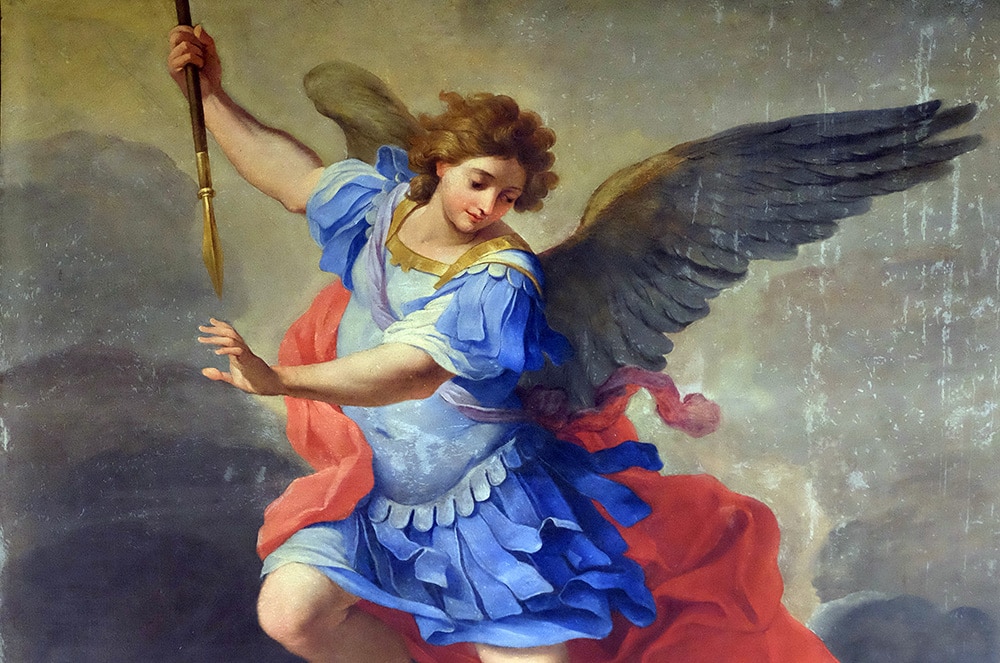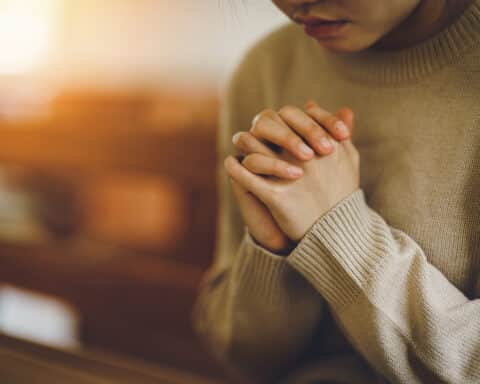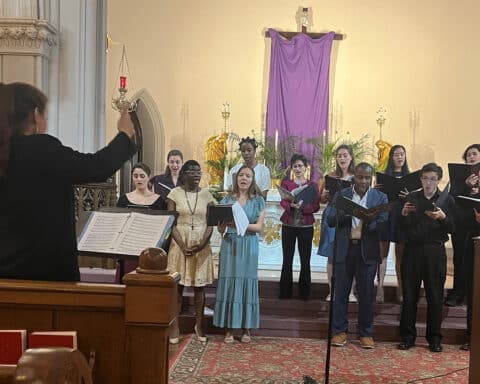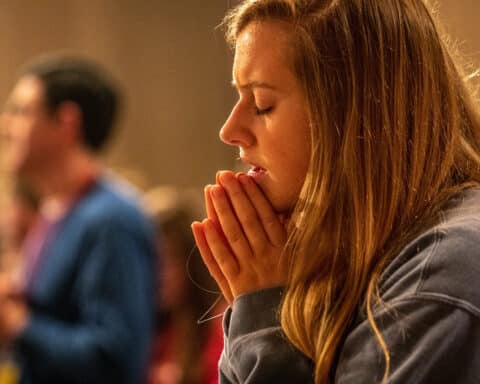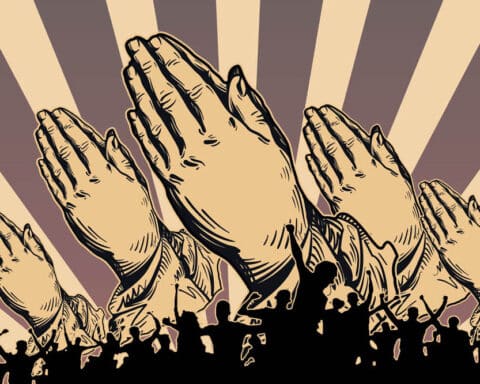
— Donald McCrabb, Greenbelt, Maryland
Answer: The recitation of the prayer to St. Michael has become more common in U.S. parishes. There are a couple of reasons for this. First, there is rising concern about the presence and activity of demonic forces in our world and in our families and communities. Second, the prayer to St. Michael was once a part of the prayers which Pope Leo XIII prescribed to be recited at the conclusion of every low Mass. Those who are 60 years of age and older likely remember these prayers and saw reason to revive at least some of that tradition.
The prayer to St. Michael is not part of the Mass. It is recited after Mass has finished, though usually before the priest leaves the sanctuary. Nevertheless, the Mass is concluded and there is no requirement for anyone to stay once the priest or deacon has given the dismissal. Having certain prayers and devotions after Mass, such as the Rosary, is common in many parishes. However, in those cases, the prayers begin after the priest leaves the sanctuary. But the priest himself often leads the prayer to St. Michael before leaving, and hence your question has significant merit.
Technically, the Roman rite makes no provision for the recitation of prayers after the dismissal. The General Instruction of the Roman Missal states: “The concluding rites consist of: a) Brief announcements, if they are necessary; b) The priest’s greeting and blessing, which on certain days and occasions is enriched and expressed in the prayer over the People or another more solemn formula; c) The dismissal of the people by the deacon or the priest, so that each may go out to do good works, praising and blessing God; d) The kissing of the altar by the priest and the deacon, followed by a profound bow to the altar by the priest, the deacon, and the other ministers” (No. 90).
While it is arguably problematic that the prayer to St. Michael is added after the words of dismissal, one should note that there is also no mention of a hymn that is to be sung as the priest and others leave the sanctuary. But this is a very widespread custom in parishes, especially on Sundays. No recessional hymn has ever been prescribed in the Roman rite. It is merely a custom about which the General Instruction is silent. It is neither forbidden nor prescribed.
For a liturgical purist, however, additions or accretions are to be avoided. But if that be the case, then the recessional hymn, sung nearly everywhere, is a violation of this principle. Should this practice be ended? Perhaps, but pastoral solicitude for customs that develop have a place as well. This is especially the case in a practice that develops after the Mass has technically concluded. Time will tell if other additions accumulate at the end of Mass. The balance may then tip, and bishops and pastors may have to set limits and give more guidance so that the rights and time of all the faithful are respected. One brief prayer or hymn may not be enough at this point to tip that balance, but your concerns are not without merit and should be weighed against the laudable practice of hymns and prayers that occur after the dismissal.
Catholic burial
Question: Can a Catholic be buried in an urn or container in a non-Catholic cemetery or ground of any kind?
— Margaret Pearson, via email
Answer: Yes, a Catholic, cremated or not, may be buried in a non-Catholic cemetery. A deacon or priest should bless the grave or columbarium niche where the bodily remains are placed. The grounds of Catholic cemeteries are consecrated, but this is not the case with other cemeteries. Hence, the blessing is important if burial is sought in non-Catholic settings. A further note: Cremated remains should never be scattered or stored in closets. Proper burial practices should be observed, and the remains should be buried intact or placed in a niche in a recognized cemetery. Simply burying remains anywhere is to be avoided and may also violate civil laws. We should treat the cremated remains of a person with the same reverence of the body since they are not ashes, but what remains of their body.
Msgr. Charles Pope is the pastor of Holy Comforter-St. Cyprian in Washington, D.C., and writes for the Archdiocese of Washington, D.C. at blog.adw.org. Send questions to msgrpope@osv.com.

